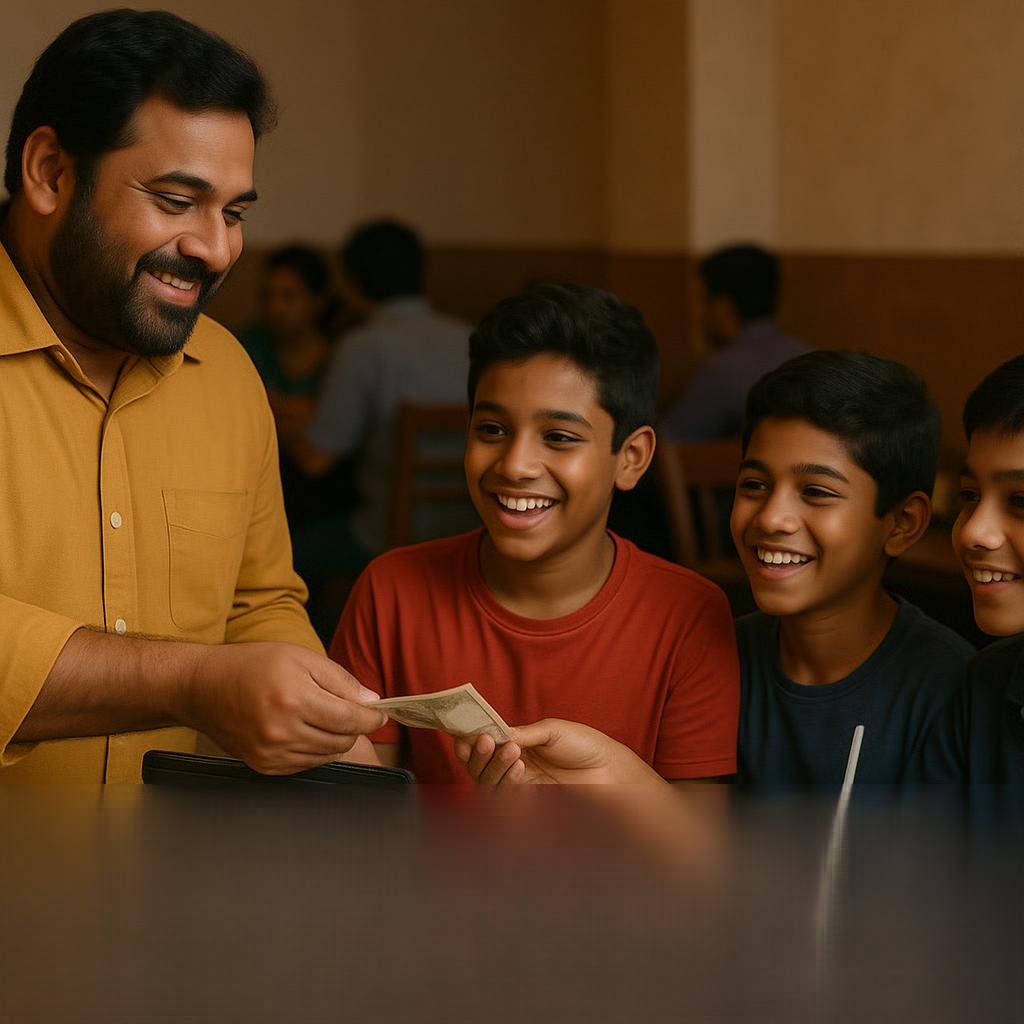
by Dr Rahim Said
In an age where viral TikTok trends, petty online dramas and political noise often dominate our screens, it’s easy to feel like genuine kindness has gone out of fashion.
But every now and then, a simple, quiet story reminds us that goodness still exists — not in grand, viral gestures, but in small, human moments.
And today, I want to tell you about a man named Sinathambi.
I don’t know his full story. I don’t need to. Because some people don’t need a spotlight to do what’s right.
A few evenings ago, Sinathambi was having his usual dinner at a small restaurant near his home. At the next table sat three young boys, cheerful and chatty over two pieces of roti canai and three plastic cups of iced drinks. A modest meal by any measure. Something about them felt familiar.
After finishing his meal, Sinathambi walked over and joked, “You look familiar.”
The youngest one grinned and replied, “Uncle, the other day you bought us dinner.”
And just like that, a small kindness from the past found its way back to him.
A couple of months earlier, at a different restaurant nearby, these same three boys had been standing near the cashier, clutching a few crumpled ringgit and eyeing some sweets. It was dinner time.
Sinathambi asked them gently why they weren’t eating a proper meal. The answer was simple, and quietly heartbreaking — they didn’t have enough money.
Without a second thought, he offered to buy them dinner. When asked what they wanted, one shyly said “nasi ayam” or chicken rice. True to their unassuming nature, they insisted that one plate was enough for all three.
No fuss, no demands. He bought them a plate and three drinks, and left. No social media post, no grand announcement.
Fast forward to this week, and fate — or perhaps simple geography — crossed their paths again.
Curious about their situation, Sinathambi sat down for a chat. The boys told him their parents weren’t working, and their elder sister was doing her best to support them. The eldest was in Form 2, the second in Standard 4, and the youngest in Standard 2. Life wasn’t easy, but their eyes still sparkled when they spoke.
When Sinathambi offered again to buy them more food, they politely declined. One eventually agreed to an extra drink, while the eldest carefully calculated their bill to the sen — a humble RM7.50, already counted out and placed neatly on the table.
Silently, without drawing attention, Sinathambi paid for both his meal and theirs before leaving.
There’s a certain kind of goodness in this world that doesn’t need an audience.
It reminded me of Atticus Finch in To Kill a Mockingbird, who believed in doing right quietly, even when no one’s watching. Or George Eliot’s words in Middlemarch: “The growing good of the world is partly dependent on unhistoric acts.”
We live in a time where kindness is often staged for social media likes. But it’s these small, sincere gestures — buying dinner for hungry boys, remembering a familiar face, treating people with dignity — that hold our society together in invisible, precious ways.
There are so many children like those three boys. Kids who don’t ask for much, who politely refuse when offered more than they need, whose smiles hide heavier stories than we imagine. And sometimes, if we’re lucky, those faces stay with us.
So, here’s to Sinathambi — a gentleman with a big heart and a sharp memory. In a world where people often step over others to get ahead, may we all be a little more like him.
And if fate is kind, perhaps he will run into those boys again.
Because some people you meet for a moment, but remember for a lifetime.
(The views of the writer are entirely those of his own)
WE